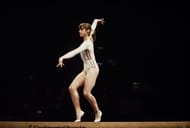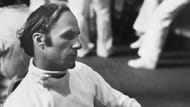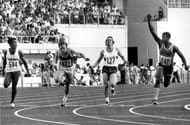Following a dark Olympics in Munich in 1972, the quadrennial event arrived in Montreal, Canada, in 1976. The Games hoped to be a ray of beacon in an otherwise dark world. However, it didn't add much. Instead, the Montreal Olympics were financially disastrous, the second such edition such as the Paris Games of 1924.
The Montreal Olympics of 1976 were also one of the weirdest. From using a cigarette lighter to lighting the Olympic flame, to witnessing the downfall of Team India in hockey, the Olympics saw it all.
Some interesting facts from the Montreal Olympics of 1976
Lighting the Olympic flame with a cigarette lighter -
![Montreal Olympics - Where a cigarette lighter was used to light the Olympic flame! [Image for Representational Purposes]](https://staticg.sportskeeda.com/editor/2021/07/599ab-16266799153583-800.jpg?w=190)
Yes, you read that just right. The Olympic flame at the Montreal Olympics was lit by a cigarette lighter! However, it wasn't a deliberate act. It was done in an emergency by a local official, because a storm had extinguished the original flame in the stadium. The flame was later relit with a replica of the Olympic torch.
Perfect 10 from Nadia Comaneci -

However, the star attraction of the Montreal Olympics was Romanian gymnast Nadia Comaneci. She was only 14 when she arrived in Montreal, and she nailed it in her debut Olympics.
During the uneven bar team event, she was awarded the first perfect 10 in Olympic gymnastics for her prowess. Interestingly, the scoreboard of that time was not programmed to display that she had received that score, so her score read as '1.0', instead of '10.0'.
Nadia Comăneci earned six additional "10s". She won gold medals for the individual all-around, the balance beam and uneven bars. She also won bronze for the floor exercise and a silver as part of an all-around team.
Boris Onishchenko - The first official cheater -

The Olympics is not unassociated with cheating. Since the St. Louis edition, we have seen cheating in some way or another. However, most of the cases were amateurish. But Boris Onishchenko was of another league altogether.
Boris was a gold medalist in the team event of the modern pentathlon at the Munich Olympics in 1972. Competing for the Soviet Union, he was competing in Montreal in the fencing section, when the British raised objections.
During Onishchenko's bout with British team captain Jim Fox, the British team protested that Onishchenko's weapon had gone off without hitting anything.[5] In fact, Onishchenko's épée was in the air away from Fox when the hit was registered.
When investigated, it was found that Onischenko's épée had been illegally modified to include a switch that allowed him to close this circuit without depressing the tip of his weapon, so he could register a touch without making any contact with his opponent. Onischenko was ejected from the competition, which forced the Soviet Union to scratch from the team event. The British team that exposed Onishchenko went on to win the gold medal.
Hasley Crawford - The Caribbean who broke the European and American dominance of the 100 meters -

Until the Montreal Olympics, 100 meters had been a reserve for the Europeans. The only country who could challenge this dominance was the USA. Except for them, nobody had the guts to challenge the dominance in the Men's 100 meters.
But one man did, and in style. This is the story of Hasley Crawford, Trinidad and Tobago's first Olympic gold medalist.
Crawford qualified for the final of 100 meters in Munich, but an injury mid-race forced him out. After finishing as the runner-up at the 1975 Pan American Games in the 100 meters, Crawford was added to the team by American coach Bob Parks.
His new coach prepared him for the 100 meters and 200 meters events at the 1976 Summer Olympics with a strategy of only allowing him to run in a few races during the season. The tactic paid off, and Hasley Crawford became Trinidad's first ever Olympic champion.
The introduction of astroturf and the doom of Indian hockey -
![Montreal Olympics - Introduction of Astroturf and the doom of Indian hockey [Image for Representational Purposes]]](https://staticg.sportskeeda.com/editor/2021/07/6f02b-16266820043982-800.jpg?w=190)
At the Montreal Games in 1976, a new surface - astro turf - was introduced to field hockey. Unlike natural grass, this was faster, better, and was almost water proof.
Coincidentally, the very edition confirmed the doom of Indian hockey, which was an anti climax. Only a year ago, the same team had won the FIH Hockey World Cup for the first and only time, defeating arch rivals Pakistan by 2-1.
While many people believe astro turf was one reason, the real reason was internal politics. IHF president Ashwini Kumar was the only man to check for unnecessary interference by politicians and bureaucrats in the sport. However, he was forced to resign by 1974.
Ashwini Kumar's absence was reflected in India's performance. For the first time, India finished outside the medal bracket. They could not even win a face-saving bronze medal. India was forced to be content with a measly 7th position. This was the beginning of a doom which Indian hockey could never recover from until 2014.
The only saving grace for India was Sriram Singh Shekhawat, who almost won the gold medal in the 800 meters, had he not slowed down in between. Another star attraction was Shivanath Singh, the marathon runner who finished a surprising 11th, something nobody ever expected.
